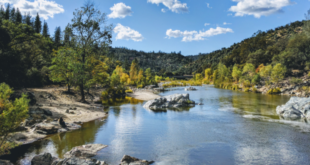Cal Water, in partnership with the California Association of Science Educators (CASE) and DoGoodery, has launched the eighth annual Cal Water H2O Challenge. The free, project-based competition invites fourth-, fifth-, and sixth-grade classrooms in Cal Water service areas to develop and implement solutions for local water issues.
This is also the third year that the Cal Water H2O Challenge welcomes school-based clubs to participate. To date, nearly 300 classrooms and clubs have participated in the program. Cal Water has evolved its model to help bring a project-based learning opportunity to students whether school is in-person, remote, or hybrid.
The Classroom Challenge asks students in fourth through sixth grades to identify a water-based issue and work together to address their chosen issue through research and experiments over four to eight weeks. Like last year, due to the hurdles of distance learning and the need for an equitable, fair competition, this year’s Classroom Challenge focuses on designing solutions to care for water. Judges will not be seeking fully implemented projects, but looking for complete designs that have been tested and refined, with the aim to address a local water issue.
The challenge builds on seven successful years’ experience of the classroom-based competition to engage more people in caring for water at a range of levels. Introduced in last year’s expansion, the eighth annual Classroom Challenge includes Teacher Ambassadors. With the implementation of office hours and virtual meetings, along with an updated handbook, new video guides, and additional resources, Teacher Ambassadors and advisors have developed a clear pathway to engage students in real-world inquiry while helping reach curriculum goals.
“We are pleased to continue our partnership with CASE and DoGoodery, bringing the Cal Water H2O Challenge to classrooms during another atypical year,” said Martin A. Kropelnicki, Cal Water President and CEO. “The challenge provides an opportunity to support the communities we serve and engage the next generation of leaders in the importance of wise water use.”
Peter A’Hearn, CASE President, adds that the challenge provides teachers an opportunity to try the project-based method, engaging students in local issues. “The Cal Water H2O Challenge is an amazing way to do project-based learning. Water is the future, and your kids can be passionate about it. Investigate a local problem and design solutions with an amazing amount of support and resources. If you have wanted to try project-based learning but didn’t know where to start, this is the place.”
The winning classroom or club will receive $3,500 with an additional $1,000 college scholarship for each participating student. Runners-up receive grants and additional prizes for students and teachers. All participants will receive student and teacher recognition in addition to gift cards for participating teachers to use in their classroom.
Barbara Elrod and her fifth- and sixth-grade students from Munsey Elementary (Bakersfield, Calif.) won first place in the 2020-2021 Cal Water H2O Challenge for their project titled “Greywater: It’s Not Grey, It’s Blue.” Elrod’s students demonstrated that greywater can be used to solve water conservation problems. The students conducted research with the Kern County Water Agency, a wastewater officer, an almond farmer, and a soil chemist, among others. They also conducted various experiments, including testing soil types and different properties of soap and water, and used their findings to create a water web site that they shared with the district and their community. Their findings earned them a front-page feature in the local newspaper and other media interviews.
Despite the limitations of distance learning last school year, students were able to connect to their community on a larger scale. “I believe one success was to give my students projects that were meaningful to them personally and connect with the larger community that they would not otherwise have known about or been a part of. It gave them a reason to be invested in math, science, writing, and research. Also, students’ talents and interests emerged and they were exposed to different careers,” said Elrod.
Elrod described the challenge as having a greater impact on her students and their community. “I believe the biggest impact of this project is that greywater will be seen as a benefit, and will open the door for the community to have an inevitable conversation about this untapped resource,” she added.
For more information about the program and eligibility requirements, visit challenge.calwater.com.
 California Water News Daily Your Source For Water News in California
California Water News Daily Your Source For Water News in California


